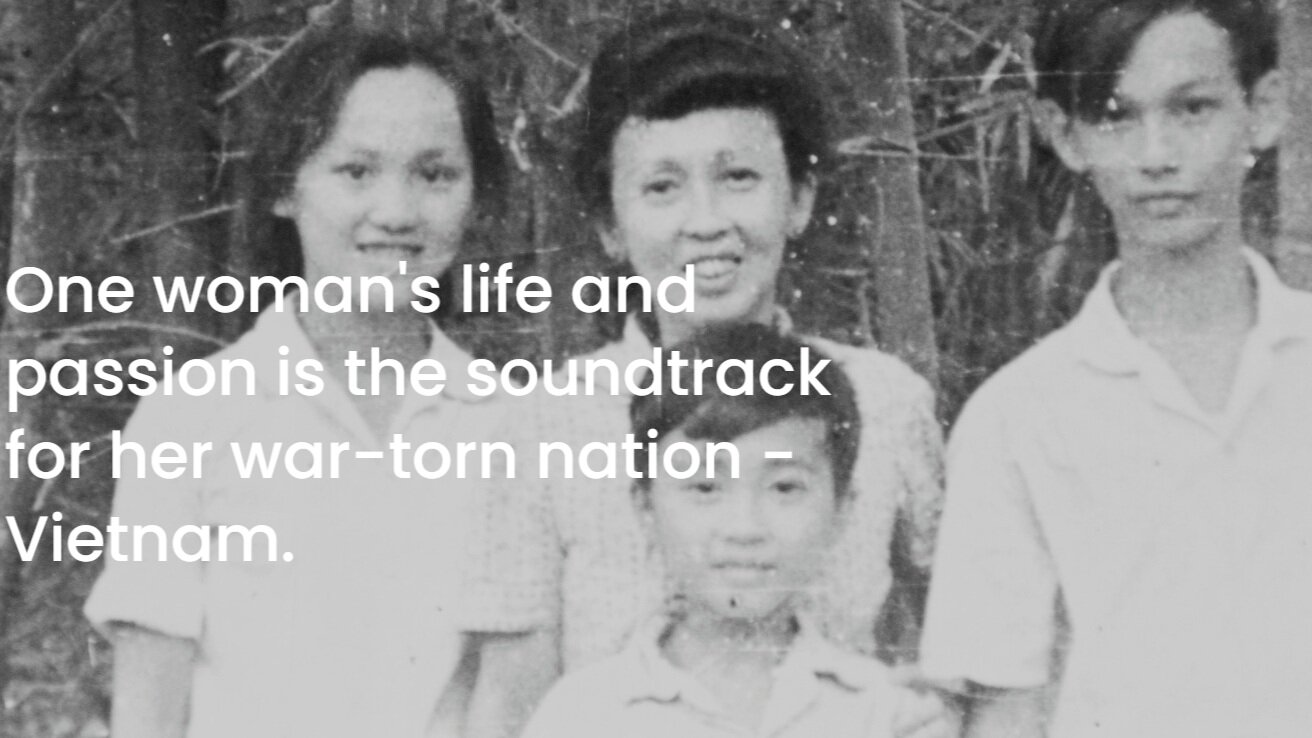In Production:
The Cannon and the Flower Movie

The Trailer
“The Cannon and the Flower" is a documentary on Vietnam's remarkable musical family featuring Thai Thi Lien and her son, concert pianist Dang Thai Son. Madame Lien salvaged a single piano abandoned by the French in Hanoi and co-founded a music conservatory in the wake of the First Indochina War. In 1965, as bombs hailed on Hanoi, Dang Thai Son and Madame Lien, his first piano teacher, fled with a piano in tow to the mountains for a decade of dangerous, primitive music education. A few years after the war, Son would be the first Asian to win an international contest, the Chopin International Piano Competition, and rise to international stardom.
The bombs fell like dark rain on Hanoi.
It was July of 1965, and it was time to flee the city for the shelter of the mountains. Under cover of night, with the moonlight as their beacon, Thai Thi Lien, her 7-year-old son and 400 music students and faculty slipped away to safety, away from the city.
They took along an unusual piece of furniture: a piano. Eventually some 60 pianos traveled to a village 43 miles away from the city by truck, then by water buffalos, and finally hand-carried by the musicians – all under cover of night. These pianos were then taken to homes and placed next to tunnels which led to bomb shelters which had been hand-dug by the students. The conservatory was evacuated twice during the bombing of Hanoi.
With one piano abandoned by the French, Madame Lien had co-founded Vietnam’s premier music conservatory in 1956. It is now known as the Vietnam National Academy of Music (VNAM.) Despite its humble beginnings, VNAM today is the most prestigious music institution in all of Southeast Asia.
Madame Lien, the faculty and their students pursued a passionate study of classical music amidst daily threats of death and destruction. Despite shortages of everything from food to sheet music, forced to study near tunnels to escape the bombing, they survived. Under her leadership and the indomitable desire to create and excel, they thrived.
Madame Lien’s family was scattered; her husband, a dissident poet, was away in his hometown, her oldest son at school in another province, her daughter studying piano in China. She and her youngest child, Dang Thai Son, were left all alone with the music. Son busied himself copying precious and scarce piano music during the evacuations. They had no electricity, no running water and the constant hunger that accompanied the meager food rations.
But at night, under the moonlight Madame played Chopin. She had begun to teach piano to her 7-year-old. As his mother played, Dang Thai Son listened intently in the courtyard with other children. He was so moved by the experience of hearing Chopin’s nocturnes in this natural setting that it changed the course of his life.
The music lifted Son, his soul, and his emotions. In 1980, Son would elevate the spirit of his countrymen far above the suffering of war, to soar on each note he played. In a triumph of genius, will and the imagination, 22-year-old Dang Thai Son won the International Chopin Competition in Warsaw, Poland, a few short years after literally practicing under ground. He was the first Asian pianist to win the competition, even though it marked his first public performance and his debut with a symphony orchestra.
When the Vietnamese national anthem was played for Dang Thai Son, the unknown sensation shocked the world – a musical genius emerging from the rubble of a war-torn country.
Son’s sense of sonority, poetry and refinement has made him an acclaimed interpreter of Debussy and Ravel. But above all, it is Son’s ability to convey the duality – the beauty and tragedy of Chopin’s music that has captivated audiences around the world, especially those in Europe and Asia. Today, Son is based in Montreal and continues a vibrant international performance and teaching career. Due to the United State’s embargo on Vietnam, Dang Thai Son was unable to obtain a visa to perform in the U.S. until the embargo was lifted in the 1990’s.
